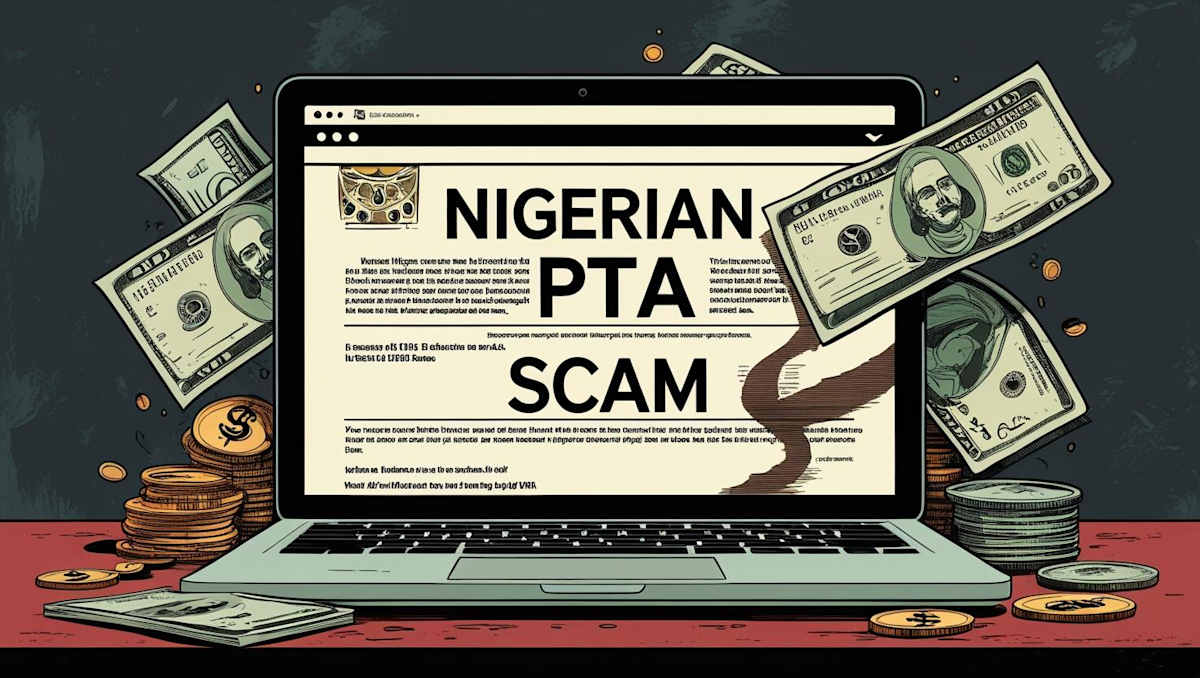https://www.unionbankng.com/pta/
Understanding “PTA” in the Context of Travel Scams – Especially Among Nigerian Fraud Rings
When navigating the world of online travel discussions or encounters with unfamiliar financial requests, especially those involving individuals from West Africa, particularly Nigeria, you might come across the term “PTA”. While it has a legitimate meaning in travel and finance, it has also become a buzzword in scams—most notably in romance scams, visa fraud, and money laundering schemes. Let’s unpack what PTA means and how it’s used, both legally and fraudulently.
What is PTA?
PTA stands for Personal Travel Allowance.
In Nigeria and several other countries with strict foreign exchange controls, PTA refers to the foreign currency a traveler is allowed to purchase from the government or a licensed financial institution at a preferential exchange rate for personal travel outside the country. It’s designed to assist citizens traveling for leisure, education, or medical reasons by giving them access to foreign currency at a rate lower than the often volatile black market.
In Nigeria, for instance, the Central Bank allows travelers to access a certain amount of U.S. dollars (or other foreign currencies) at the official exchange rate, provided they meet specific criteria:
- Proof of a valid visa
- Confirmed flight ticket
- International passport
- Proof of destination and purpose of travel
How Scammers Exploit the PTA System
While PTA is a legitimate policy, scammers have found ways to manipulate it—or pretend to.
Here’s how it often plays out in scams:
1.
The PTA Request Scam
A scammer, often posing as a love interest, business associate, or desperate traveler, will reach out claiming they need money to access their “PTA” so they can travel. They might say:
- “I have all my documents ready, I just need help accessing my PTA.”
- “The government is giving travelers money but I need a small amount to process it.”
The con? There’s no real travel plan. The “PTA” becomes a made-up justification to make the request sound official, urgent, and credible.
2.
Fake Refund or Loan Scheme
Others flip the story and say they’re entitled to a PTA refund but need a processing fee to claim it. Some even pose as government agents or travel brokers offering to help the victim access PTA in exchange for an upfront payment.
3.
Laundering through PTA-Related Transactions
In more elaborate fraud schemes, scammers may use the real PTA system to launder money. They open bank accounts under false identities, pose as travelers, obtain foreign currency at subsidized rates, and sell it on the black market for profit—or worse, send it overseas as part of a larger financial crime network.
Red Flags to Watch For
If someone mentions PTA in any of the following contexts, consider it a warning sign:
- They ask you to send money to help them travel or “process PTA.”
- They mention the Central Bank or a Nigerian travel agency needing a fee to release funds.
- They claim you will benefit or share in the proceeds of the PTA.
- They insist they’re about to travel but need a small sum for “PTA processing.”
What To Do If You’re Targeted
- Don’t send money. No legitimate travel agency or government institution should ask a stranger to help someone else access their PTA.
- Verify identities. Do a reverse image search or look up their name on scam databases.
- Report it. In the U.S., you can report scams to the FTC or IC3.gov. Nigerian scams can also be reported to the EFCC (Economic and Financial Crimes Commission).
- Educate others. These scams often rely on emotional manipulation—especially romance or trust-based schemes—so helping others recognize the tactics can prevent heartbreak and financial loss.
Final Thoughts
The term PTA might sound official—and it is—but when it pops up in unexpected financial requests from strangers or online acquaintances, especially involving Nigeria, proceed with caution. Scammers often weave truth into their lies to make their stories more believable.
By staying informed and skeptical of unusual requests, particularly those wrapped in bureaucratic language like “PTA,” you can protect yourself and others from falling victim to these evolving scams.
If you’ve encountered a PTA-related scam or have questions, feel free to share your experience in the comments or reach out for help. Awareness is the first step toward prevention.
